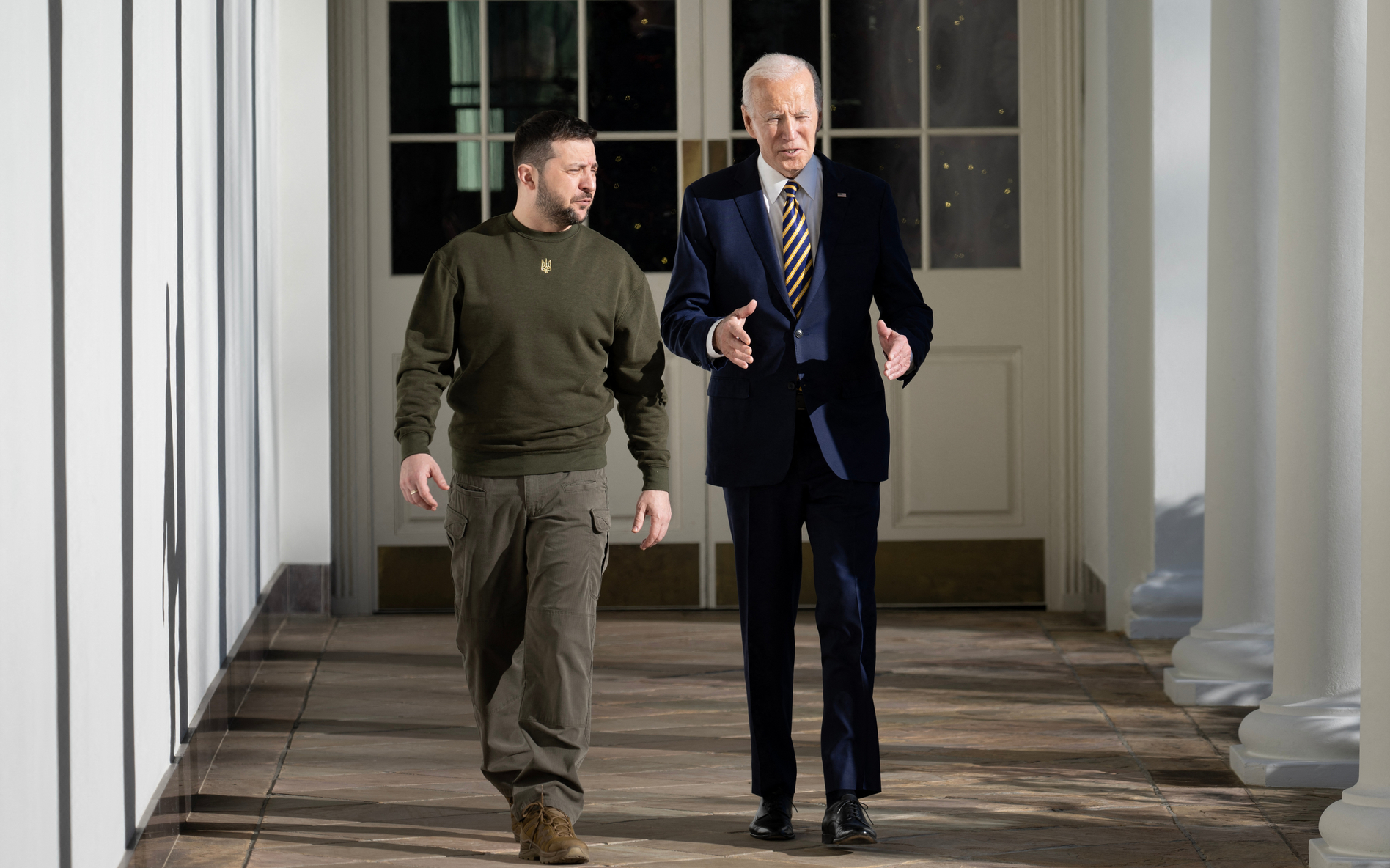Will the US and Russia Go from Cold War to Hot in 2023?
According to sources quoted by the U.S. press, the U.S. plans to approve the supply of Patriot anti-aircraft missile systems to Ukraine in the near future. The spokesman for the U.N. secretary-general stated publicly that what the U.N. wants to see is not a Ukraine that is the recipient of an increasing number of weapons, but one in which an early peace can take hold. This view is clearly unfavorable to the U.S. and the West, so it comes as no surprise that the West would insist on rejecting it.
In an interview with the media not long ago, Aleksandr Dugin, often referred to as “Putin’s brain,” publicly predicted the prospects of the Russia-Ukraine conflict: Either Russia will win or the world will be destroyed. Western scholars have put forward similar sentiments in the past, suggesting three possible scenarios: Either Russia will win; the stalemate will last; or Russia will lose. But if Russia were to lose, the U.S. and the West would be faced with a dire situation, implying the world would be plunged into nuclear war.
As we bid farewell to 2022 and enter 2023, it is hard to deny that humanity is headed toward the brink of a third world war. Despite the declassification of various files on the great power struggles of the second half of the 20th century, the superpowers have had the option to use nuclear weapons for more than half a century, ever since the U.S. dropped two atomic bombs on Japan. However, with the exception of the U.S. and the Soviet Union, both of whom shocked the world when they openly broached the prospect of nuclear war during the Cuban Missile Crisis, there has been no cause for alarm over other uses of nuclear weapons, if only because they have been kept secret. The fact that the world is now actually witnessing the approach of nuclear war call for the utmost vigilance.
The Cuban Missile Crisis in the 1960s quickly abated because the U.S. and the Soviet Union were the only belligerents. The two countries found a way to compromise, though, and the crisis came to a natural end. However, in the current intensifying conflict between Russia and Ukraine, the U.S. and the West are determined to defeat Russia by supporting Ukraine, whereas during the Cuban Missile Crisis, neither the U.S. nor the Soviet Union had any intention of killing each other. The U.S. and the West are bound together with Ukraine, and it will not be easy to reach an agreement with Russia on a truce, let alone on peace.
The most recent example of the situation comes from French President Emmanuel Macron. Macron told French television station TF1 that he visited the U.S. and met with President Joe Biden to discuss the American and European need to prepare their “future security architecture” due to the situation in Ukraine. He also hinted that, in future negotiations to bring the Russia-Ukraine conflict to an end, Russia needed “security guarantees.”
Ukraine and other European countries have questioned Macron’s remarks. Ukraine reacted strongly, with Mykhailo Podolyak, an adviser to Ukrainian President Volodymyr Zelenskyy, saying that it was the world that needed Russia’s security guarantees, and that Russia ought to be held accountable for providing them. The three Baltic states of Estonia, Latvia and Lithuania, as well as Poland and Slovakia, have also officially objected to Macron’s comments to the French government. In light of these events, France has been forced to reiterate its firm support for Ukraine.
Europe Facing Serious Security Challenges
With the U.S. and the West bent on wanting to bring Russia to its knees, an interview with former German Chancellor Angela Merkel in Die Zeit is further compelling evidence that the voices of reason must be silenced. In discussing the Russia-Ukraine issue, Merkel said that Germany and France had pushed for the 2014 Minsk Protocol in order to “buy time” for Ukraine to “build up its military strength,” and that “it was clear to everyone that the conflict was at a provisional stalemate. The problem has not been resolved,” she said, “but it gives Ukraine valuable time.”
Yet a few months ago, Merkel publicly stated that one should take Putin’s views seriously, and she repeatedly stressed that she had no regrets about having developed economic ties with Russia during her tenure as chancellor. Her latest comments therefore clearly cater to the intensely anti-Russian stance of the U.S. and the West, and it can be shown from this one aspect that the conflict between Russia and Ukraine will further escalate, bringing us closer to the precipice of a third world war.
Once again, the Russia-Ukraine conflict has shown that the main threat to world peace lies in Europe, because the nuclear powers have not entered into direct conflict in other geopolitical hotspots, such as the Middle East or the Korean Peninsula. So far, the U.S. has been pitting itself against Russia through indirect involvement in the Russia-Ukraine conflict, but it is moving toward direct intervention. This is why the U.N. secretary-general’s office has made it clear that it does not want an increasing amount of weapons to be sent to Ukraine. If the U.S. ignores the call, it will be tantamount to blowing the lid off any pretense to indirect involvement.
During last century’s Cold War, the nuclear powers did not merely avoid conflict under the doctrine of “mutually assured destruction;" the division of powers established by World War II also prevented the superpowers from being at odds with each other. Today, the world is undergoing changes not seen in a century, with the center of gravity shifting from the West to the East. And the U.S. is not just resisting – it is threatening world peace with its words and deeds.


